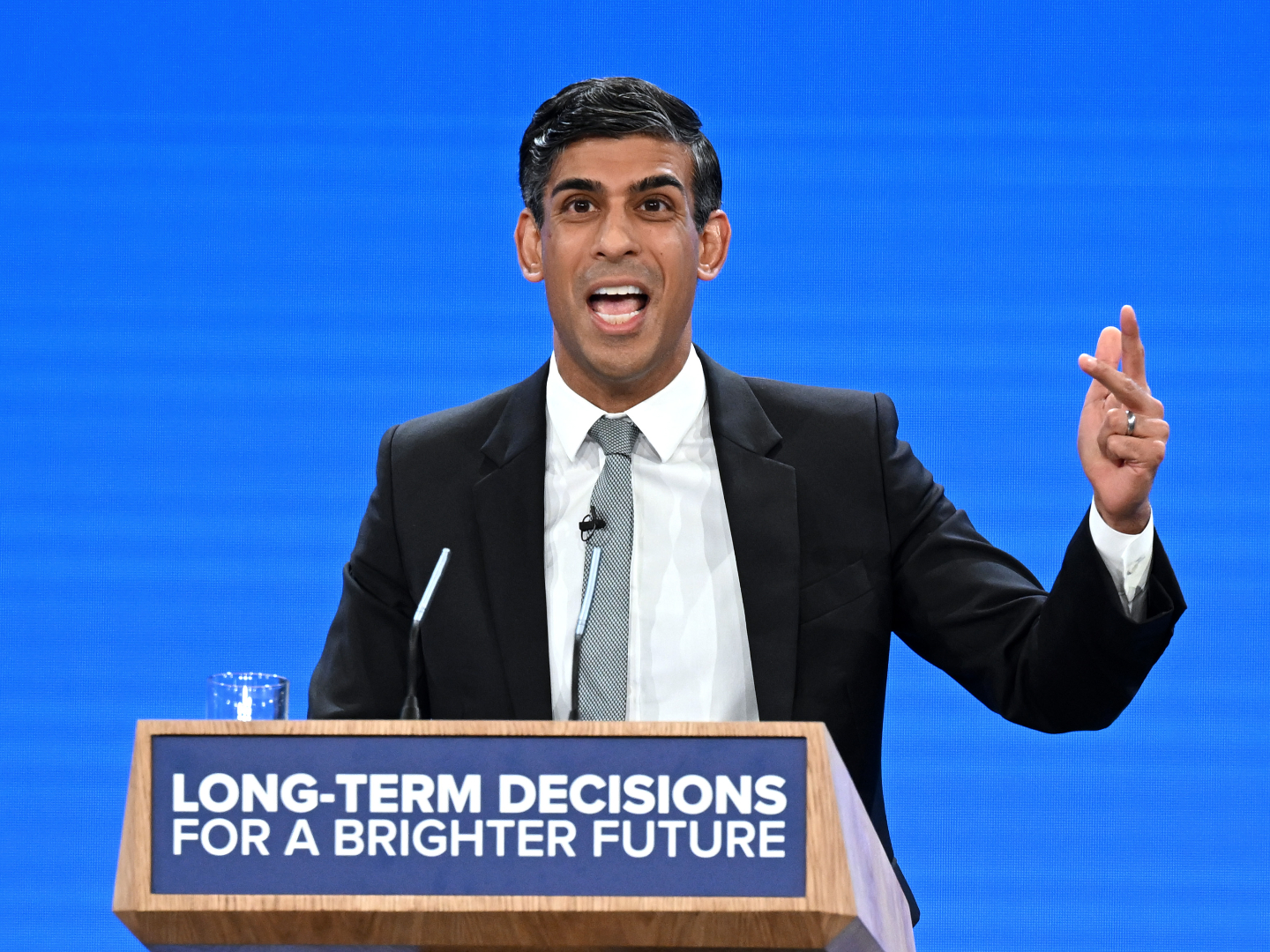The Conservative in-name-only government of Rishi Sunak has been accused of “more broken promises” by Brexit leader Nigel Farage after the Home Office quietly watered down plans to raise the salary threshold requirements for chain migration.
On Thursday, junior Home Office minister Andrew Sharpe revealed in a written answer to Parliament that the government would not immediately raise the minimum salary required for naturalised migrants or other Britons to bring foreign members of their family to the UK on visas to £38,700, as the government had announced earlier this month. Instead, Sharpe said, the government would raise the income requirements “in incremental stages to give predictability”.
The Home Office said that it will seek to increase the threshold for chain migration from £18,600 to £29,000 by sometime in the spring with supposed plans to raise it again at a later date so far not disclosed to the public.
Following the watering down of the plans, which were aimed at reducing net migration by 300,000 per year, Home Secretary James Cleverly claimed that the policy would still be able to achieve its stated goal.
“I have been clear that current levels of migration to the UK are far too high,” he said per Sky News. “The British people are, rightly, frustrated and want to see action.”
“This plan will deliver the biggest ever reduction in net migration, with around 300,000 fewer people coming to the UK compared to last year, delivering on our promise to bring the numbers down.”
However, many were not convinced, with Brexit leader Nigel Farage writing: “More broken promises. Don’t believe a word they say, immigration will not come down.”
Indeed, while the Conservative Party won general elections in 2010, 2015, 2017, and 2019 elections on the promise of considerably reducing immigration, it has continued to climb to new highs under Tory rule, with net migration hitting a record 672,000 in the year leading up to June and over 1.2 million over the past two years.
Even members of the Conservative Party expressed scepticism of the government’s immigration strategy after the apparent backtrack, with former government minister Jonathan Gullis writing on social media: “Legal migration to the UK is too high and unsustainable. That is why the government was right to introduce tough and necessary new measures to get numbers down, and demonstrate control of our borders. This decision is deeply disappointing and undermines our efforts.”
The chairman of the Common Sense Group of Tory MPs, Sir John Hayes said per The Guardian: “If we’re going to £38,700, which seems to be very sensible, then that needs to be done with speed so that people know where they stand.”
The deputy chairman of the European Research Group of Brexiteer Conservative MPs, David Jones, told the PA news agency: “The government should have stuck to its guns. Yesterday’s decision was a regrettable sign of weakness, made worse by the fact that parliament was not sitting and therefore was unable to interrogate ministers on the reasons for the decision.”
It comes amid a growing divide within the Tory party over immigration, with a battle breaking out earlier this month over legislation to supposedly fix the scheme to send illegal migrants to Rwanda. Dozens of Tory MPs refused to vote for the legislation, given that it failed to address the ability of illegals to wage lengthy court battles to avoid being removed from the country and that flights could still be stopped by the France-based European Court of Human Rights (ECHR).
The bill will face another battle next month, however, it appears that Sunak will seek to satisfy the corporatist pro-mass migration wing of his party, while merely paying lip service to the voter base, which is increasingly sceptical about his ability to reduce both legal and illegal immigration.
A survey conducted this month found that a stunning 70 per cent of the public disapproved of the prime minister’s performance, with just 21 per cent viewing Sunak favourably after a year in office.
